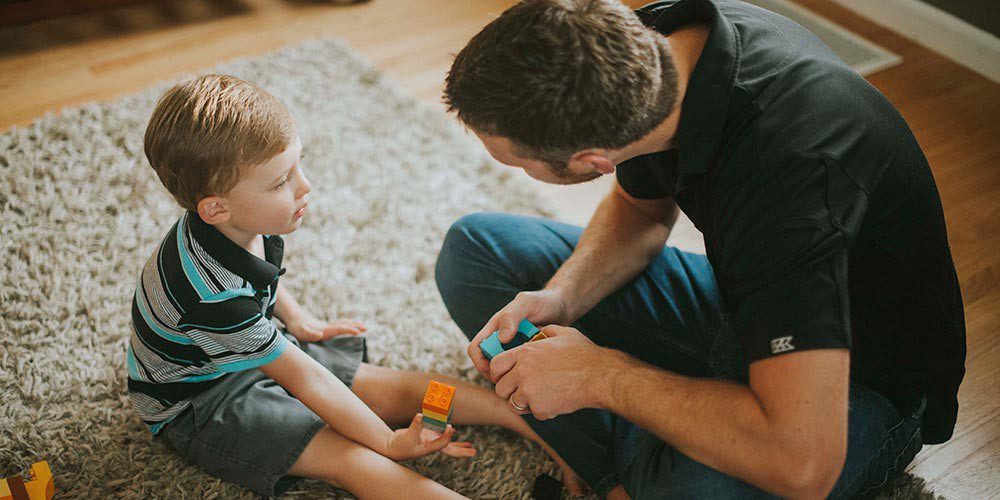When she was a little girl, it seemed a lot easier, didn’t it? Your conversations with your daughter just started more naturally, your interests seemed more aligned, you could buckle her into her car seat and go. Now you’ve got a young woman on your hands, still your little girl, but, well, different. She’s full of opinions and her own way of looking at the world. She makes some great choices and some terrible ones; and on top of all that, she’s turning into a woman. It’s beautiful to see, and scary, and just plain different.
These days, it can be hard enough just to get a normal conversation going. “How do I connect with my daughter?” “What do we have to talk about?” “How does this thing go again?” And now add another layer of complication: you’ve got a tough moment on your hands. Something’s gone wrong somewhere. She is going down a dangerous path or something bad has happened to her. You’re a dad staring across the room at your sweet daughter, knowing you’ve got a conversation to start. Having difficult conversations like these can be scary. What are you going to do? What do you need to keep in mind? Want a few suggestions? Here are three to consider.
Figure out how to make it safe.
There may be an impending danger to your daughter that needs immediate corrective action. Her life or well-being might be compromised. In that case, attending to safety means speaking quickly and directly. Name the issue. Put out the fire. But sometimes, safety means making an effort so that your daughter is as OK as possible with this conversation. She might need a moment’s preparation to collect herself. She might need privacy, in which case you’d take her on a walk instead of having the conversation in the middle of the family room. Maybe she just needs reassurance that you’re on her team, that you really are there to help. What will it take to help her be safe in this conversation?
Assess what kind of help or intervention your daughter needs.
All kinds of things can happen, but one conversation doesn’t fit all scenarios. There’s a big difference between starting conversations about bad choices your daughter might be making versus trouble she’s getting in (at home, or at school, or with the law) versus her being in over her head and needing help (eating disorders, pregnancies, being bullied). At one end of the spectrum, you might need to help your daughter notice the possible consequences of her actions. At the other end of the spectrum, the consequences of her actions might be all she’s able to see. You might need to communicate to your daughter the love you have for her, that won’t go away, no matter what. You might need to find a balance of truth and love that best fits the needs of the moment.
Be the adult.
This means being both proactive and mature. Your daughter has between 13 and 18 years worth of experience in living. You have more. She doesn’t have the life answers she needs. She couldn’t possibly in 15 whole years. This doesn’t mean you have all the answers, either; but it does mean you are bringing the benefit of your experience and wisdom to your daughter as a gift. You know as well as I do that she won’t always want to hear it. (I often resist wise counsel, too) But being the adult involves moving toward her proactively anyway. You have something she needs whether she knows it or not. And it won’t always be this way. When she’s an adult, she won’t even have to listen. So while she is in this in-between place called being a teen, move toward your daughter even if it feels like taking a risk. Give her the blessing of your perspective. Of course, you will always want to couple this with maturity. That too is part of being the adult. Even if your daughter is being immature (which, by definition, she often will), you are called to be mature, self-controlled, and wise. If you’re not ready to present your emotion with control, you’re not ready to talk.
It was, in fact, easier when she was little. But you’re growing into something that has the potential to be even richer as your daughter grows. Keep at it. This can pay a huge and delightful reward.












Huddle up with your daughter and ask, “How could you and I talk better?”